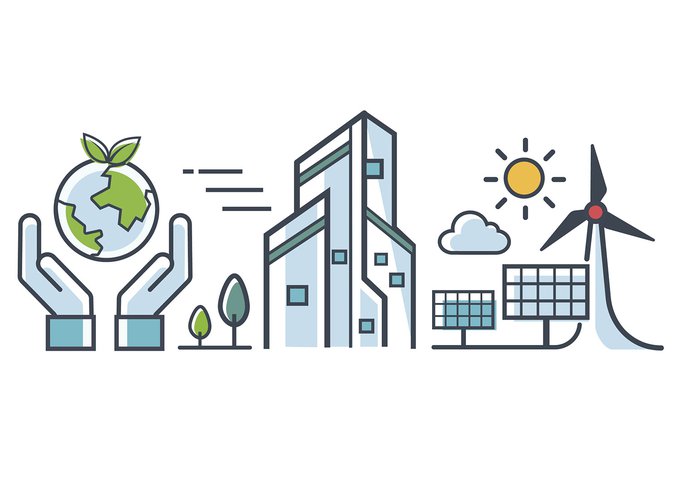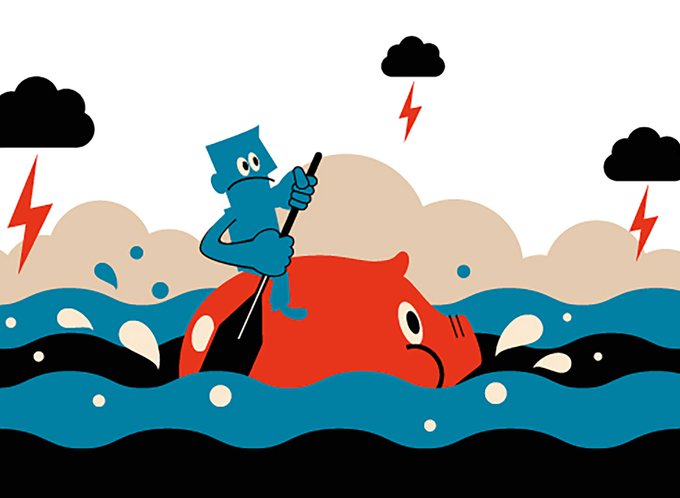MAS’s Senior Growth Manager of Investments, Jules Riley (pictured), examines whether green and sustainable investment lives up to its claims.

Updated 11 January 2024
Earlier this year, German police raided the Frankfurt offices of one of the world’s largest fund managers, DWS.
Their target? Evidence to confirm major suspicions of greenwashing.
Prosecutors said they were investigating allegations that DWS had sold investments as ‘greener’ or ‘more sustainable’ than they actually were.
Contrary to statements made in sales prospectuses, environmental, social, and governance (ESG) factors were not being considered in many investments.
Days later, DWS CEO Asoka Woehrmann resigned under a cloud of doubt while investigations into the company continue.
Accusations of greenwashing are becoming more common as ethical investing grows in popularity. Globally, up to 30% of total funds under management are now labelled as ethical, responsible, green, sustainable or impact.
It’s often marketed as ‘conscious capitalism’, helping investors to ‘make the world a better place’.
But does it really pay to be good? Or does it pay to simply look good?
Like all complex issues, answers are never black and white. Some fund managers are absolutely helping their clients bring about positive change through their investments, while others focus more on the marketing than the real-world impacts.
A good place to start in answering this question is by trying to understand what ethical investment really is. It’s typically defined as an investment strategy that considers social and environmental factors together with risk and return. It can be broken down into several investment practices such as exclusions, active ownership, consideration of ESG factors and sustainable investing. Some ethical fund managers do all these well, while others do only one or two poorly.
Exclusions
Some fund managers claim to be ethical simply because they do not invest in certain companies, industries or countries, like British American Tobacco, weapons or Russia. It is argued that excluding companies shames them into improving and makes it harder and more expensive for them to raise money, eventually rendering them uncompetitive.
The reality is somewhat different. If you are an ethical investor, selling your shares in an unsustainable company simply means you transfer your ownership to another, by definition, less- ethical investor. You also give up any voting rights and influence you had over that company to make them change. While divestment and exclusions can sometimes impact a company’s share price, this does not necessarily affect their access to capital.
Well-established companies in industries like fossil fuels and tobacco often fund investment via cash flows or raise it privately, where capital can be found with fewer strings attached.
Nevertheless, valid reasons remain for excluding certain companies. These are mainly centred on values. For instance, do you really want to invest your savings into a company that manufactures products that kill people or pollute the environment?
It’s for reasons like these that MAS will not invest in companies whose principal business activity involves fossil fuels, weapons, and tobacco – industries that do not align with our purpose of inspiring a healthier Aotearoa.
Active ownership
Through your KiwiSaver savings, you probably own shares in hundreds of companies. These shares carry voting rights and therefore influence over the companies you hold. Active ownership is about using these votes and your position of ownership as a force for good.
For example, we represented MAS Members at Tesla’s AGM in August this year and voted against management on several proposals. These included voting to respect workers’ rights to collective bargaining, improving efforts to prevent employee discrimination and better management of water risks. As the world’s largest electric vehicle manufacturer, Tesla is undoubtedly contributing significantly to a more- sustainable future. But even strong companies have weaknesses, and it’s important for shareholders like MAS to advocate for continuous improvement.
ESG
ESG is about considering the environmental, social and governance impacts of an investment alongside its risk and return. The aim is to help investors identify companies that look after their customers and employees, and the environment they operate in. More- sustainable companies should be able to grow faster by selling into higher-value markets, attracting better employees and reducing regulatory risks.
Although aspirational, ESG by itself typically struggles to achieve these goals. It’s difficult to measure many different and often subjective factors. In addition, the three goals of environmental, social and governance can sometimes come into conflict. A company might improve its ESG score by developing an ethics policy (governance) even though its carbon emissions (environment) continue to rise.
So while ESG continues to be a valuable part of an investment decision process, it should not necessarily be thought of as an end goal in itself. To achieve this, we focus on more-deliberate ways to influence change such as sustainable investing.
Sustainable investing
Sustainable investing seeks to intentionally invest in companies helping to solve some of the world’s biggest problems like clean energy, green building and the circular economy.
It’s important to point out that, by investing sustainably, you are often still buying existing shares of a company. You’re not necessarily providing it with cash to build, for example, a new wind farm.
That said, through sustainable investing, you can achieve this goal indirectly. By buying shares in a more- sustainable company, you can increase its valuation and make it easier for the company to raise capital. This helps it invest more, grow faster and make a greater impact.
Sustainable investing can also help you reduce your risk. Markets often struggle to correctly price longer-term risks such as climate change, which are likely to disproportionately affect less-sustainable companies. It’s for these reasons that the MAS KiwiSaver Scheme has a carbon footprint that’s around half the market index average* while investing almost 80% more into clean technology solutions.**
Find out what others are saying
The world of green investing is actually rather grey.
There are different funds, doing different things, using different terminology. Some are doing a great job and others less so.
When in doubt, it can be helpful to seek out independent endorsements from third-party organisations that do the work for you.
The ones to look for are certifications from the Responsible Investment Association of Australasia (RIAA), ‘Mindful funds’ as recognised by Mindful Money, and schemes that are signatories to the United Nations Principles of Responsible Investment. MAS is among a small group of KiwiSaver Scheme providers to have all three of these third-party endorsements.
To learn more about our approach to ethical and responsible investing, head to mas.co.nz/investments/responsible-investing
Medical Funds Management Limited is the issuer of the MAS KiwiSaver Scheme and the MAS Retirement Savings Scheme. A PDS for each Scheme is available here:
* Compares the carbon footprint of equities in the MAS KiwiSaver Scheme to the MSCI All Country World Index which has a carbon footprint of 82 tonnes of CO2e/US$ million invested as at 31/03/22. A $NZ/$US exchange rate of 0.70 was used for this calculation.
** According to MSCI, clean technology solutions are defined as companies that derive >20% of revenue from clean technology solutions including alternative energy, energy efficiency, green building, pollution prevention or sustainable water. Equities within the MAS KiwiSaver Scheme are compared to the MSCI All Country World Index as at 31/03/22.
Know someone who might enjoy this?
Read this next
-
March 2022
Taking an active approach to investing
-
July 2022
Saving through the storm
Money
See all-
March 2021
Reimagining the Kiwi homeownership dream
-
March 2022
Taking an active approach to investing
-
July 2022
The Curve: Raising financial literacy





